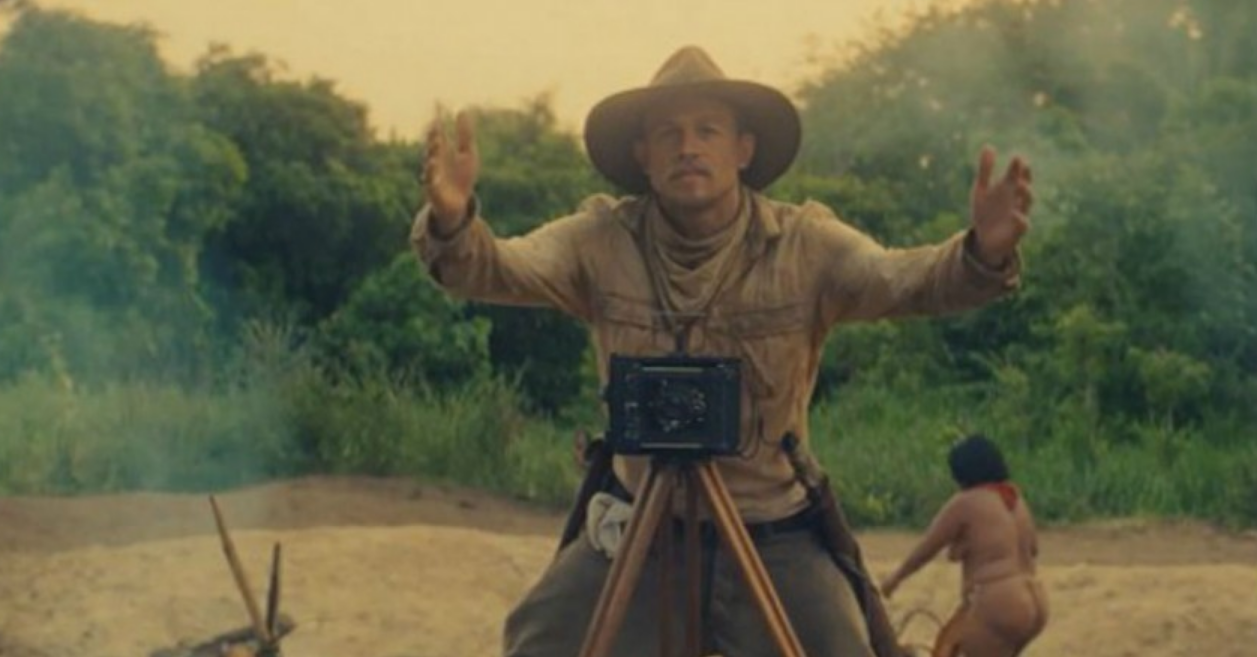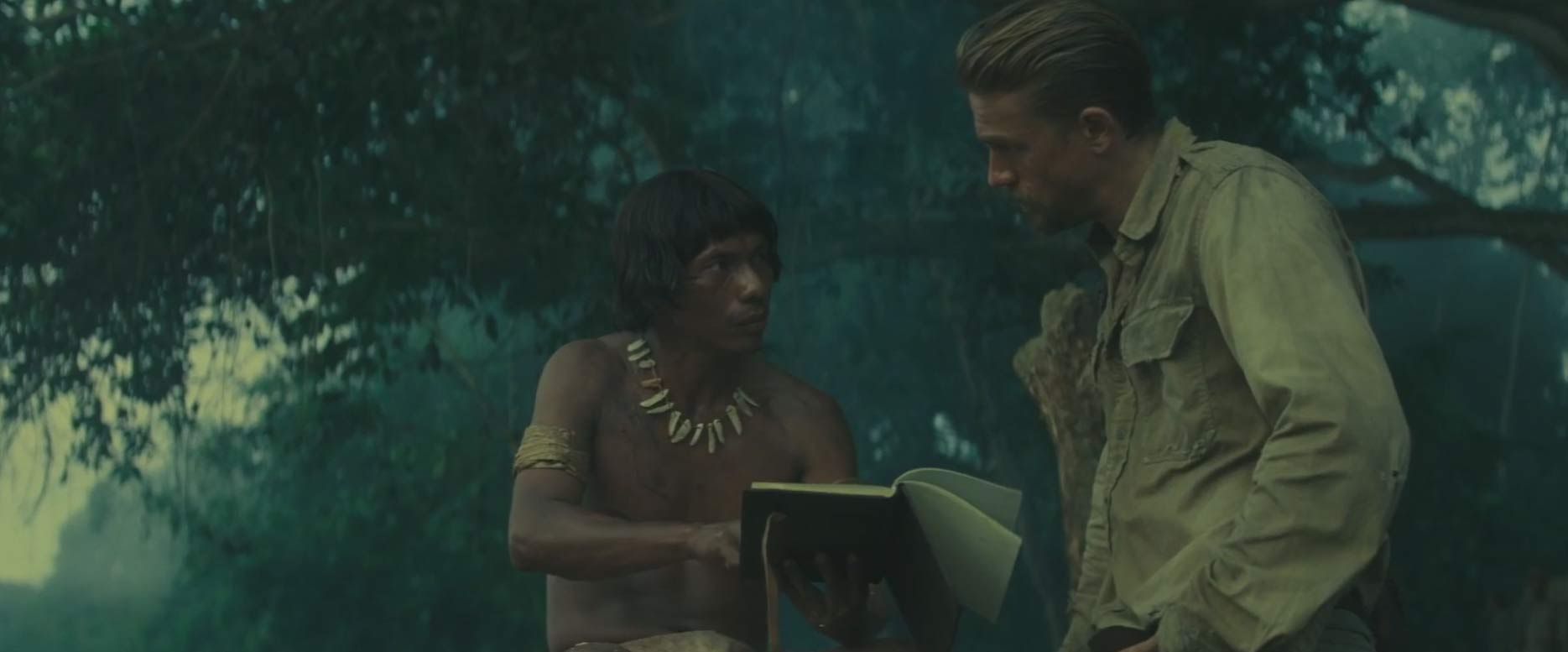Is it weird that I found a film about a twentieth century
explorer who goes missing in the Amazonian jungle while looking for a lost
civilization to be highly inspirational? I’m not saying I’m going to run off to The
Amazon but while watching James Gray’s adventure/biographical picture “The Lost
City of Z” the idea of exploration and traveling seems awfully appealing. That
is by far the most surprising thing about “The Lost City of Z.”
With little more than that simple plot summary (explorer
goes missing in jungle) I went into Gray’s film expecting an “Aguirre: The
Wrath of God” type experience; another story of an obsessive, crazed and
delusional conqueror aimlessly traversing mysterious jungles for wealth and
personal glory. Instead, I got a more uplifting, more enlightening experience.
Sure, British explorer Percy Fawcit (Charlie Hunnam, in a sturdy, wonderstruck
performance) is obsessive and slightly crazy. You have to be if you want to
explore the Amazonian jungle. But his obsessive and crazy tendencies don’t come
from a sinister or antagonistic place but one of genuine curiosity and thirst
for exploration.
“The Lost City of Z” is about a man who becomes seduced by
the wonders of the jungle and is never able to truly leave it. Even when Fawcit
is back in England, or in a muddy trench during World War 1 the jungle’s
alluring siren song (the tranquil sound of rushing river water, pleasant bird
songs, the ambient buzzing of insects, the thrilling woosh of native Amazonian
spears whizzing past his head) and the prospect of finding a previously unknown
(to western knowledge) ancient civilization, linger in his psyche.
“The Lost City of Z” is a celebration of exploration and
adventure, not in the context of conquest, not as a means of acquiring wealth,
land and commodities, but adventure for the sake of shear curiosity and
personal discovery. Fawcit wants to visit new lands and observe new cultures
for his own personal enlightenment and education. Fawcit is both progressive in
his views and alienated in his home country, where he’s surrounded by people
who still have a Eurocentric mindset. Even the established explorers are
narrow-minded and flat out racist in their view of people and cultures outside
of the West, referring to the Native Amazonians as “savages.”
"The Lost City of Z" is an enriching film about getting outside your
comfort zone and opening your mind to different people and cultures. It depicts
the pure joy of exploration—venturing to strange and unfamiliar places is good
for the soul.
Throughout the picture, Gray brings depth and dimension to
the Amazonian jungle. This is not a dark, one-dimensional continent of
antagonism and savagery but a place of beauty and innovation. In a scene
towards the middle, Fawcit and his team spend a few days living with a tribe of
natives, where they observe advanced farming and fishing techniques and simply
converse with the villagers--getting to know them. These natives aren’t savages
or colonial subjects but fellow humans.
Gray humanizes this region of the world while at the same
time retaining its mystery and otherworldliness. The picture puts us firmly in
the shoes of an outsider—seeing things that few westerners have seen. Gray and
cinematographer Darius Khondji evoke this particular time period and place
extremely well. The movie was shot on heavily saturated 35 mm film; the scenes
often look grainy and have a yellowish tint. This effect gives the movie a
beautiful and authentic period look, as if you’re looking at old photographs or
an ethnographic film made about the region. Though you’ve probably seen The
Amazon before, (whether in person or in a media) while watching “Lost City” it
feels like you’re seeing these places, along with Fawcit, for the first time.
With all that being said, Gray avoids completely
romanticizing his film and subject both by emphasizing the grittiness and
palpable danger of trekking through a jungle (whether it be hostile natives,
violent river rapids, harmful reptiles and insects) and showing the negative
effects this kind of life can have on your loved ones. Fawcit may adore the
jungle and its inhabitants but he frequently neglects his loyal wife Nina
(Sienna Miller) and kids. These domestic scenes provide Fawcit with some much-needed
depth, particularly when they expose a glaring shade of hypocrisy.
A few days before his second expedition, Nina expresses her
own interest in exploring the Amazon along with him, an idea that Fawcit
immediately shoots down. A heated argument follows, wherein Fawcit explains
that a woman’s place is in the home. For a guy with such progressive views
regarding race and other cultures, this is an incredibly sexist thing to say.
Ultimately, I wish the film devoted more scenes to this matter (after that
argument, the issue is pretty much dropped) but it’s an interesting point of
conflict that makes Fawcit into a three dimensional, flawed character.
Even with its classic linear biopic structure, “The Lost
City of Z” took me by surprise with its near flawless craftsmanship, its
humanist and sympathetic outlook on cultures outside The West and the way it
beautifully illustrates the joys of traveling and adventure. Maybe I will run
off to The Amazon after all.
B+



No comments:
Post a Comment